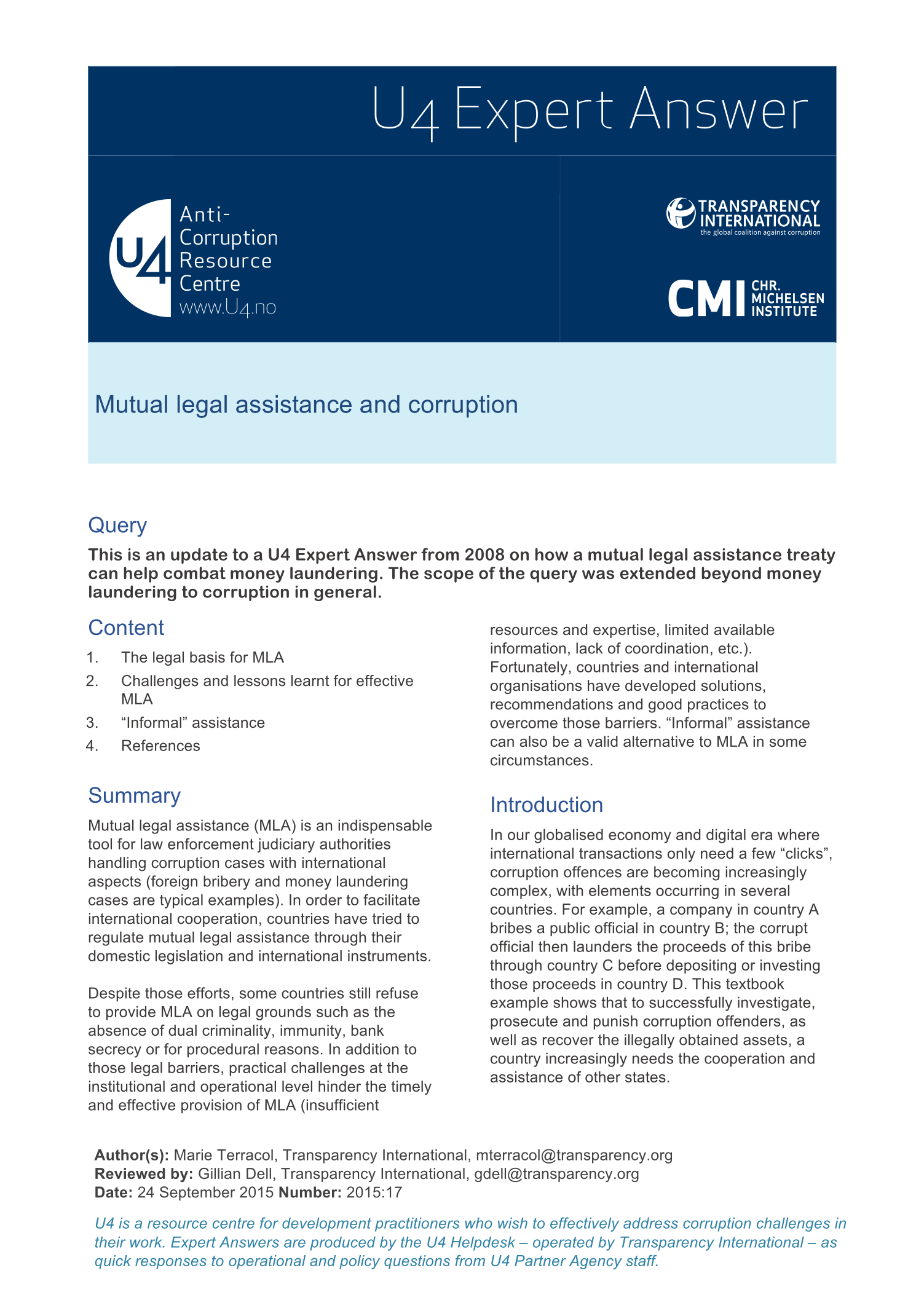U4 Helpdesk Answer
Mutual legal assistance and corruption
Mutual legal assistance (MLA) is an indispensable tool for law enforcement judiciary authorities handling corruption cases with international aspects (foreign bribery and money laundering cases are typical examples). In order to facilitate international cooperation, countries have tried to regulate mutual legal assistance through their domestic legislation and international instruments.
Despite those efforts, some countries still refuse to provide MLA on legal grounds such as the absence of dual criminality, immunity, bank secrecy or for procedural reasons. In addition to those legal barriers, practical challenges at the institutional and operational level hinder the timely and effective provision of MLA (insufficient resources and expertise, limited available information, lack of coordination, etc.). Fortunately, countries and international organisations have developed solutions, recommendations and good practices to overcome those barriers. “Informal” assistance can also be a valid alternative to MLA in some circumstances.

Cite this publication
Terracol, M. (2015) Mutual legal assistance and corruption. U4 Expert Answer 2015:17
Disclaimer
All views in this text are the author(s)’, and may differ from the U4 partner agencies’ policies.
This work is licenced under a Creative Commons Attribution-NonCommercial-NoDerivatives 4.0 International licence (CC BY-NC-ND 4.0)

